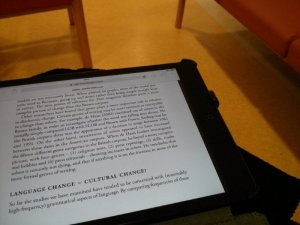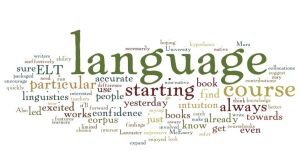I find myself in a very rare situation of having too much time on my hands… way too much time! So, it was a very nice surprise and an honour to be tagged by Rachael Roberts in a lighthearted new challenge that’s doing the rounds. Read Rachael’s post (and follow the links back) to find out more. Essentially, what she was asked to do, and what she’s asked her nominees to do, is:
- Acknowledge the nominating blogger.
- Share 11 random facts about yourself.
- Answer the 11 questions the nominating blogger has created for you.
- List 11 bloggers.
- Post 11 questions for the bloggers you nominate to answer, and let all the bloggers know they have been nominated. Don’t nominate a blogger who has nominated you.
I HAD been browsing through my favourite posts of the year, using my twitter stream to find them (remember, I have too much time on my hands!) so that has been temporarily abandoned as I set about my new task.
Update: After publishing this post in response to Rachael, I was very pleased to also be nominated by Ljiljana Havran and Geoff Jordan (you can find out more about them and read their contribution to this challenge by clicking on their names) so I’ve added answers to their questions to this post rather than start another post about me – one’s more than enough!
11 random facts about myself
- I was born in Scotland and I live in Scotland but I have an Irish accent having grown up in Ireland.
- I used to work for Interpol – a little known fact that I frequently use in truths and lies icebreaker activities.
- My very first tweet up was with Jeremy Harmer and Tony Watt at a Pearson event in Edinburgh.
- I love dancing. Not clever dancing where there are particular steps or moves but the type where you just move about vigorously preferably to live music but cheesy disco tunes are good too!
- I also love a good argument. I prefer those that I win. Otherwise, as long as I can say what I think, challenge or be challenged, and feel like I’m making some sense, I’m happy.
- I can’t sing – a fact my mother regularly reminds me of at family birthday celebrations. To corroborate this, I have also been asked to leave a school choir, and asked if I could sing more quietly!!
- I don’t know why there’s 11 of everything in this challenge.
- I would like to knit. It sounds like a very relaxing thing to do while watching rubbish on the TV. I got knitting needles and some wool last Christmas. This year I’ve asked for knitting patterns – easy ones!
- I love Christmas 🙂
- I get the giggles. And there are certain people who just set me off – in particular, a friend at work, my son, a friend I met on my MSc course and my mother.
- One of my favourite TV programmes at the moment is Gogglebox where you watch people watching TV. It’s a lot better than it sounds!
Answers to Rachael’s 11 questions
1 Why did you start blogging and how has differed from your expectations?
I started blogging so that I would have a place to say things I wanted to say which didn’t fit into a tweet or a forum. I also had the feeling that because I was reading and enjoying other people’s blogs, I should make my own contribution. I didn’t expect to enjoy it so much, or for people to read and interact with it.
2 What’s your earliest childhood memory?
Getting a new doll when my brother was born. Once I had my baby, I went to see my mum’s new baby. At least, I think I remember that. Perhaps, I just remember being told about it.
3 Tell us about someone you admire, and say why.
I really admire Shelly Terrell. Do I really need to say why? I first met Shelly on twitter a few years ago when, as far as I was aware, she was relatively unknown in the online world of education. Her curiosity, enthusiasm and passion for all things education have been inspiring and her professional development has been very impressive.
4 What was the last book you read and what did you think of it?
Complicity by Ian Banks for our book club. I enjoyed most of it.
5 Do you prefer walking or running? Why?
Walking. It’s easier!
6 What was your first paid job?
As a young person, I delivered leaflets with one of my friend’s mothers. She’d collect us all from school and spread us around local housing estates. It wasn’t a bad first job – fresh air, exercise, comraderie, and not getting bitten by the dogs that roamed free. As an adult, my first real job was as a component programming clerk with Aer Lingus where marks I made on a sheet of paper had implications for whether plane parts where maintained or overhauled.
7 What five famous people would you invite to a dinner party, and why?
Oh dear, famous people? I’m not very good on famous people – I can never remember their names. Let’s see…
… no, I’ll need to come back to this one!
8 What’s the first website you check/go on each day? Why?
Facebook. To see what’s been happening or what’s going to happen.
9 What can you remember about the first class you ever taught?
It was a small group of Polish forestry workers. I can’t remember what I did with them, I just remember being relieved that I got away with whatever it was.
10 Flowers or chocolates?
I have to choose?!?
Flowers.
11 How do you feel about reality TV shows?
I do like the UK Big Brother. It’s another one of my favourite programmes. [Update: I’ve gone off Big Brother!] I really enjoy watching people, seeing how they react, interact and communicate. I find it relaxing. I’m not so keen on talent shows like the X-Factor.
Answers to Ljiljana’s 11 questions
1 What foreign languages do you speak?
I speak (or at least used to speak) French and Dutch. It’s been a while since I’ve used either to any extent but did enjoy being at the first BELTA day in Brussels where I got to dabble in both. I keep meaning to brush up on them.
2 What is the most exciting thing about teaching?
What I find most exciting one day will be different the next. However, I do get a thrill when learners realise and/or show that they can do more than they could, or than they thought they could!
3 What is your favourite piece of art? and 4 What was your first favourite book when you were a child?
I really don’t have favourites. I enjoyed books as a child. I was always going to the library and always had a book on the go, but there is none that stood out or that I went back to – that I remember. It’s similar with art. I enjoy art but I like to see new things. I particularly enjoy public art pieces – things that can surprise and add pleasure as you go about your day or night.
5 Which quality would you like to change in yourself?
I’m too easily moved to tears. At times, this gets in the way and I’d like to be able to have more control over it.
6 What invention do you think has had the greatest impact on society?
The internet!
7 If there were a time machine which period of history would you pick first and why?
Hmm. I’m not sure I’d want to go back.
8 How much is life an adventure?
Life’s an adventure in as much as you are open to and seek out new things and new experiences.
9 What is your idea of an ideal holiday?
On the west coast of Scotland (or Ireland) with lots of family exploring empty beaches and hills, visiting new towns and villages, eating, drinking and laughing.
10 What foods do you think are most romantic?
I’ve no idea!
11 What activity/hobby would you like to take up in 2014?
I’d like to swim more (and get better at it) and spend more time with French and Dutch.
Answers to Geoff’s 11 questions
1 What’s the best book you’ve ever read in the field of ELT?
This is a difficult one to answer. I don’t think of any book as being the best I’ve ever read… well not yet anyway. There are some that I’ve really enjoyed reading – the first part of Teaching Unplugged springs to mind. I also like Teaching Adult ESOL for its relevance to the context I work in, as well as recognising and dealing with the realities of ESOL work.
2 How do you see SLA research progessing?
I don’t know how SLA research will progress but I’m most interested in individuals’ actual experiences of acquiring a second language – what works and doesn’t work for a range of learners – rather than trying to discover the ‘best’ way to teach or learn vocabulary or what teachers or learners should or shouldn’t be doing.
3 Who has influenced you most in your career?
I have to say Scott Thornbury, through his books, webinars, video presentations and interviews (I’ve yet to see him present live!) but most of all his blog posts which have helped me to grow in confidence in my practice, to see things in a new light and to stay interested in what I do.
4 Best course/class you ever did.
A post-graduate module in discourse analysis with the Open University 😉
5 What’s going to happen next in ELT?
This one is very difficult to answer. ELT is too broad and the contexts and situations are too varied. It’s good to have progress and new ways of doing things. Some ways will be better for our learners (or us); others won’t work. What’s most important is that we try out, assess and adapt whatever happens next according to what we’re trying to achieve rather than adopt an approach, technique or activity because of who has proposed it. But, in answer to your question – I don’t know!
6 One piece of advice to a new ELT teacher.
Pay attention to your learners.
7 Favorite bit of music; author; plastic artist.
I don’t have a favorite (see answer to Ljiljana’s questions 3 & 4 above).
8 Favorite place in the world to visit.
New York, or Leuven, or Paris, or Dublin…. (I’m not good at choosing favorites!)
9 Favorite place to live.
I like living in Scotland but would perhaps prefer to be closer to the coast. I loved living in Leuven in Belgium and would happily return there. And, if I had enough money for a nice place in New York, I’d go there.
10 I like blogging because…
… I enjoy writing, I get a buzz when someone from my small but valued readership likes or comments on a post, and blogging helps me to capture and focus on aspects of my work.
11 Bloggers should…
… please themselves, find their own voice, and be aware of and respond to their readers and fellow bloggers.
11 bloggers tagged in this post
I’ve tagged bloggers who I like, respect and who I’ve interacted with in some form fairly recently (and also who I hope won’t mind being tagged!) If they’ve the time and inclination, it would be lovely to hear from then. If they don’t have one or the other, then that’s alright too! In any case, clicking on their names links to their blogs – all worth visiting and browsing through.
- Tyson Seburn – @seburnt
- Cecilia Lemos – @CeciELT
- Eva Buyuksimkesyan – @evab2001
- Naomi Epstein – @naomishema
- Kathy Fagan – @eslkathy
- Vicky Loras – @vickyloras
- Steve Brown – @stevebrowntweets
- Nathan Hall – @nathanghall
- Sirja Bessero – @swisssirja
- Rose Bard – @rosemerebard
- Roseli Serra – @SerraRoseli
My 11 questions for them (and anyone else who fancies answering)
- What do you most enjoy about blogging?
- Do you play a musical instrument? If not, would you like to? Which one?
- How far do you travel to work? How do you travel?
- What do you enjoy most about the work that you do?
- What was the first thing you ate today?
- If you could travel anywhere, where would you go? Why?
- What month next year are you most looking forward to? Why?
- What meal do you prepare most often for friends?
- What was the last movie you saw? What did you think?
- What three things do you like to have with you when working?
- What do YOU think about reality TV shows?
Update: So, I enjoyed this challenge and I have already got to read some really interesting and enlightening responses – both to this post and others. It’s fun! But, it was difficult to limit my tagging to just 11 people and since posting I keep thinking of others I would also like to have tagged. Without breaking the ‘rules’, I’d love to hear from anyone reading this who might be inclined to respond to this post on their blog or in the comments, whether they’ve been tagged here or not. While I may not have had the capacity to ‘tag’ you, consider yourself ‘invited’ to complete steps 1-5 above!
Responses
Kathy Fagan Responding to Carol Goodey’s Tag
Tyson Seburn Quick facts about me (response to @cgoodey) and Responses & tags (part 2 of @cgoodey’s post)
Shelly Sanchez Terrell 11 Random Facts
Vicky Loras Eleven! Tagged by @dougpete, @cgoodey and @yearinthelifeof
Naomi Epstein “Seven on Eleven” – A Blog Game
Cecilia Lemos The 11 Challenge – The person behind the blog
Eva Buyuksimkesyan 11 Random Facts, Questions, Answers and ELT Bloggers
Rose Bard Just the facts and Tagged by Carol Goodey: A nice surprise
Steve Brown Tagged Twice
Roseli Serra 11 random facts at Christmas time
Sirja Bessero confessions from a tagged blogger




